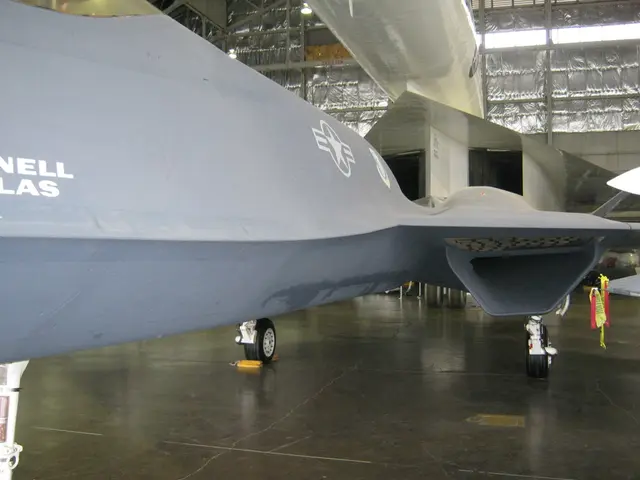Helicopter-led Border Inspections - Instant Arrival - Surprise Helicopter Border Patrol - "Suddenly, We've Arrived"
The Federal Police in Germany has implemented helicopter-assisted border controls along the Lower Saxony frontier with the Netherlands to enhance surveillance and curb illegal migration and cross-border crime.
On Saturday, deployment forces performed rapid, unpredictable checks at various locations to strengthen investigative pressure and serve a preventive purpose. These operations, called helicopter jump searches, involve swift touchdowns in designated locations and prompt deployment of officers to establish control points. While landing spots are pre-scouted, weather conditions may create challenges.
Deployment durations range from 15 to 45 minutes, ensuring that the unexpected and elusive nature of these checks makes it difficult for criminals to predict the police's whereabouts. Helicopter patrols are particularly advantageous in extensive, sparsely connected border regions about 30 kilometers from the frontier.
Such aerial patrols complement ground-based controls, providing improved capabilities for detecting and responding to illegal border crossings and smuggling operations. By increasing visible presence, these operations discourage attempts at unauthorized crossings and smuggling while offering quick intervention and real-time intelligence on border activities.
The Federal Police in Lower Saxony has reportedly reinforced its personnel, with more officers deployed in additional states, such as North Rhine-Westphalia and Bavaria. These measures are part of a broader strategy to tighten controls announced by the new Federal Interior Minister, Alexander Dobrindt (CSU), who aims to return asylum seekers to the EU country where they initially submitted applications, except for vulnerable individuals like pregnant women, children, and others in at-risk groups.
While detailed schedules and operational data were not available, these helicopter-based border controls serve a vital role in comprehensive border security, contributing to reduced illegal migration and cross-border crime by extending surveillance and rapid intervention capabilities across difficult terrain and extended border areas.
- To strengthen community safety and adhere to the federal policy, vocational training programs in the aviation industry could be considered for finance, to equip officers with the necessary skills to operate helicopters in border control operations more effectively.
- General-news outlets report that, despite the success of helicopter-assisted border controls in Lower Saxony, there is growing concern about the impact of such measures on transportation and cross-border trade, due to increased delays and unpredictable checkpoints.
- In light of the recent helicopter-based border control initiatives, there have been discussions about the potential need for vocational training in crime-and-justice sectors, such as forensic science or investigative techniques, to improve the efficiency and effectiveness of illegal migration and cross-border crime investigations.






